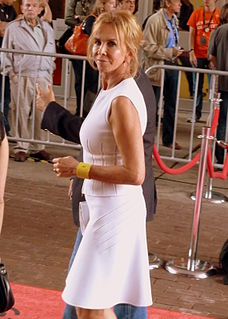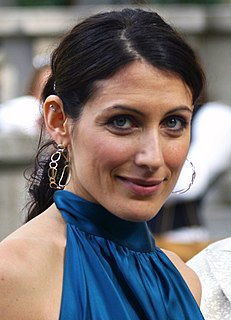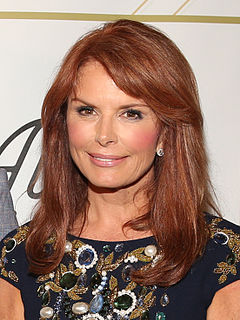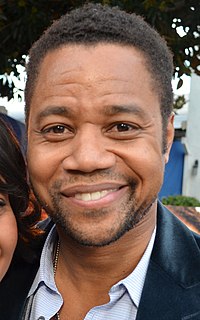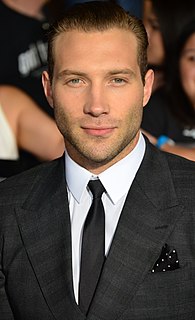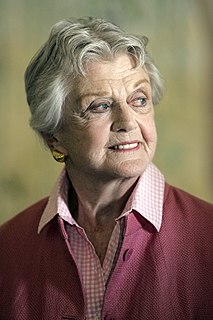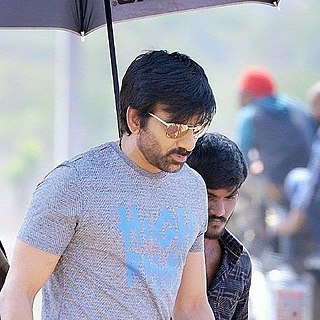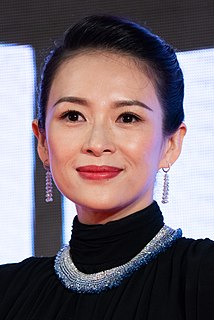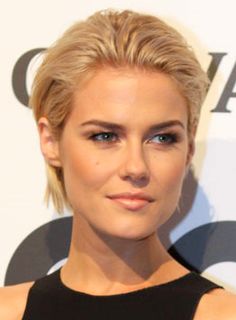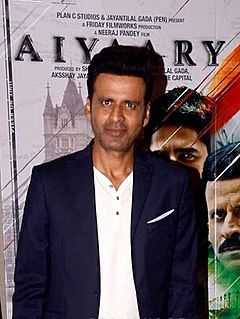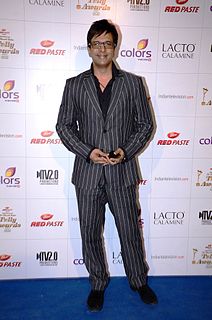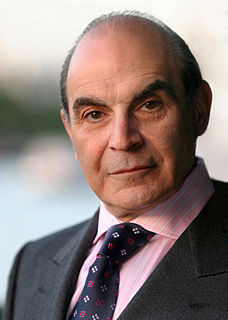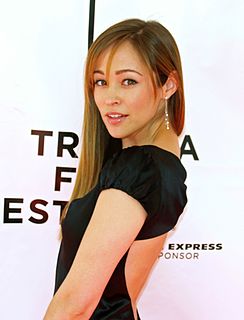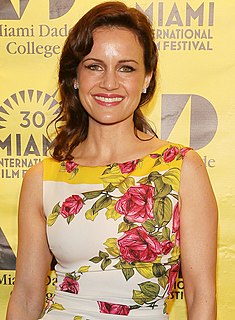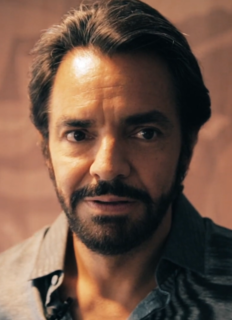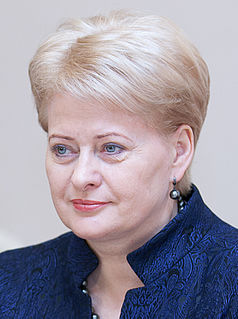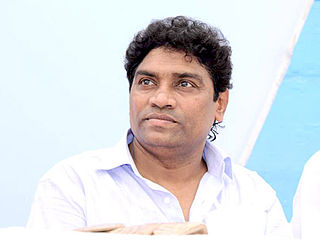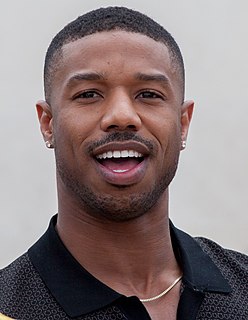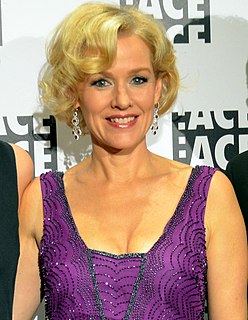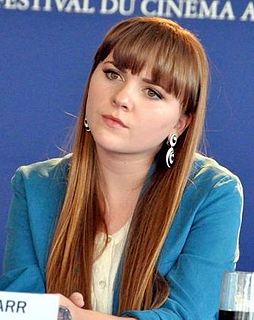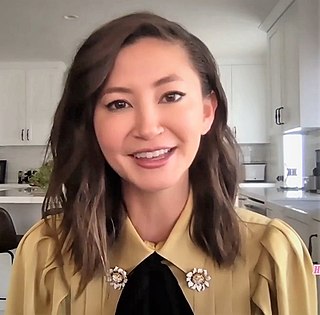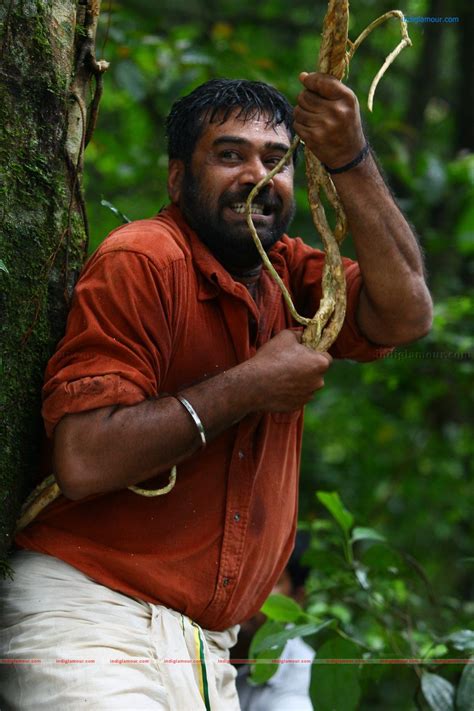Top 1200 Gender Roles Quotes & Sayings - Page 8
Explore popular Gender Roles quotes.
Last updated on December 19, 2024.
There are roles I am never considered for. Meryl Streep roles, let's say. Why not? I really wanted to do 'Ironweed,' for example, because the depression era in this country was one of the best for multiracial people, because everybody was poor. Everybody lived in the tents, and under buildings, and under gratings, together.
I can't really speak to what it was like to call yourself a feminist in the past on a personal level but I think calling oneself a feminist in the past may have been inimical because feminists in the '70s were the first to really challenge deeply embedded gender roles and demand concrete political and economic rights. They were asking for rights that seemed like a direct threat to those in power - they were asking for equality in a society that didn't have it in an obvious way. They were put down and villainized because they were seen as threatening.
The roles that men and women play are no longer the standard traditional roles of way back when but are those of two very individual people living their lives. I think it's been a hard transition in society - just take a look at the divorce rate - to figure out what that means now. How do you resolve that?
Behind the cameras, there's a different problem, which I think is not unconscious gender bias. It's probably categorized more as conscious gender bias. Because everybody's known the numbers for decades. Nobody's stunned to hear there are very few female directors, only 4 or 7 percent. Everybody knows, but it doesn't change anything. It doesn't make people say, "Wow! We should change that." Nothing happens. It's utterly stagnant.
I'm not suggesting that all men are beautiful, vulnerable boys, but we all started out that way. What happened to us? How did we become monsters of feminist nightmares? The answer, of course, is that we underwent a careful and deliberate process of gender training, sometimes brutal, always dehumanizing, cutting away large chunks of ourselves. Little girls went through something similarly crippling. If the gender training was successful, we each ended up being half a person.
People who would not be using the word gender or thinking about gayness or trans-ness may actually, without even thinking about it, be not their own gender in their inner world. I think that's actually so normal, because female sexuality is sold to all of us. It doesn't just reach the eyes of men. You might not care about the idea of boobs or jugs or whatever, but it could impact your inner sexual life.
We act as if that being of a man or that being of a woman is actually an internal reality or something that is simply true about us, a fact about us, but actually its a phenomenon that is being produced all the time and reproduced all the time, so to say gender is performative is to say that nobody really is a gender from the start.
We act as if that being of a man or that being of a woman is actually an internal reality or something that is simply true about us, a fact about us, but actually it's a phenomenon that is being produced all the time and reproduced all the time, so to say gender is performative is to say that nobody really is a gender from the start.
You have to get out of your comfort zone in order to grow. And as an actor, you don't become Meryl Streep by doing the same type of comedy. You get there by being challenged. And unfortunately, there's a lack of roles for women of color, so you actually have to be the engineer creating some of those roles.
There's a small movement of teacher-led schools across the country. These are schools that don't have a traditional principal, teachers come together and actually run the school themselves. That's kind of the most radical way, but I think something that's more doable across the board is just creating career ladders for teachers that allow certain teachers after a certain number of years to inhabit new roles. Roles mentoring their peers, helping train novice teachers to be better at their jobs, roles writing the curriculum, leading on lesson planning.
The gender prism is just descending upon us. For instance, when we're girls of nine or 10 we may be climbing trees and saying, "I know what I want. I know what I think." And then suddenly at 11 or 12, the gender role takes hold, and adults tell us, "How clever of you to know what time it is." It happens to boys, too and even sooner - between five and eight. Before that, boys cry and express uncertainty.
'RuPaul's Drag Race'... is very little about boys who dress up in girls' clothing: it's very much about grit, integrity, heart, power of perseverance, and the power of love. It's also opening a dialogue up about the persecution and the marginalization of trans people, of queer people, of gender non-binary and gender fluid people.
I really want to do roles that have some substance, and I hope writers give us that importance. I can't alone stand up and demand roles like that. It's a collective thing. Writers have to believe in heroines and understand that there's more to a woman than just her curves. It's not that they can't do it. They just choose not to.
Up until the time I was cast in 'Star Trek,' the roles were pretty shallow - thin, stereotyped, one-dimensional roles. I knew this character was a breakthrough role, certainly for me as an individual actor but also for the image of an Asian character: no accent, a member of the elite leadership team.
There are numbers of different types of partnerships or pairings that may exist in society that aren't same-gender sexual relationships that provide for some right that we have no objection to. All that said... there may be on occasion some specific rights that we would be concerned about being granted to those in a same-gender relationship. Adoption is one that comes to mind, simply because that is a right which has been historically, doctrinally associated so closely with marriage and family.
I would probably choose supporting roles if I had to make a choice. It's actually a really hard thing to say. It's all on a role-by-role basis, ultimately. I shouldn't be so quick to say that. I feel like you're given greater license to be colorful and eccentric in supporting roles, and that's interesting to me.
The fact that I'm a woman is as important to my work as a poet as the fact that Ahmad Sh?mlu was a man was important to his work as a poet. Basically, gender shouldn't be viewed as an advantage in art. If a poem or a piece of writing is good, what difference does it make whether it's by a woman or a man? And, if it's bad, why should its writer's gender make it good?
I think when I first started acting there were different people who I thought, 'I want that person's career or that person's career.' And as time has gone on, it's become really clear to me what is important to me; getting the best roles, the roles that I feel are challenging and scary and that I haven't done yet.
Once I wanted to get into films, I took my time about it because when I first got to Bombay, I gave my photos and CDs to all the production houses. But the roles that came my way were the 'typical white girl dancing in the background' kind of roles, which I was not too interested in, or it was advertisements.
When I started coming to the U.S., they were offering me only the typical stereotypical roles: the druggard, the criminal, the gang member, or in the best-case scenario, the gardener or the cook. I was fed up with all these roles that were always the same. And I promised I would try to change the image of Latinos in Hollywood.
In the 1980s, there was no category to stick me in. 'He sounds too smart' is what I was hearing. I realized that I had to become a member of the school of what I call 'ugly acting.' Which meant I wanted to do what Dustin Hoffman did very successfully: to play character roles, but lead character roles.
The fact that there aren't an abundance of African-American males that are getting lead roles [and] that are getting roles that have prominence on the big screen. [It's] the same thing from behind the camera; maybe even worse. Coming up, when you're black and you want to direct somebody says, "Oh, you're Spike Lee" or "You're John Singleton."
Roles constantly have to be redefined in any form of entertainment. Look back at the gangster pics of the 1930s and 1940s and the way James Cagney or Humphrey Bogart would play the part. These roles were redefined in the 1970s by Al Pacino and Rober DeNiro. And again in the 1990s by Gary Oldman and Anthony Hopkins.
I don't want to be pretentious about, "yes, I need to move in to the more dramatic roles and express myself and prove to everyone that I'm capable of doing it," it really isn't that, I think that's a bad reason to choose roles. It's more like, who would I be working with and would they be fun to do and entertaining to watch, is it an interesting story or character.

